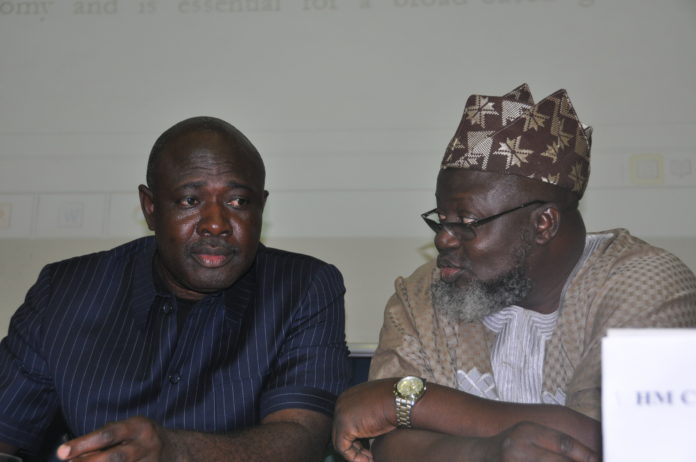
To ensure all information and data about agriculture in Nigeria are available to Nigerians and the international community, the Federal Government on Tuesday, 11th October, 2016 launched the national e-agriculture web portal.
Speaking at the launch of the portal in Abuja, Minister of State for Agriculture and Rural Development, Senator Heineken Lokpobiri described the portal as a strategic initiative, centered on enhancing knowledge between stakeholders at the Federal, State and local levels, as well as the international community.
Senator Lokpobiri also said the agricultural sector is one of the key drivers of Nigeria’s economy. “Therefore, effective harnessing of its potentials is paramount in order to open up more employment opportunities, create wealth, and guarantee adequate food for our rapidly growing population”, he stated.
He stated further that the national e-Agricultural web portal (NEAWP) project is a strategic initiative designed to enhance knowledge flow between stakeholders, and ensure inclusive and robust development of the agricultural sector. It also aim to highlight the strategic and operational components of the ICT-driven agricultural value chain in Nigeria, especially at it relates to the recently launched Green Alternative policy of the present administration.
The Minister said the desire to increase agricultural productivity and improve agribusiness has made it imperative that the right information be provided at the right time for effective planning and informed decision-making. “Accordingly, availability of information and knowledge for stakeholders needs to be taken care of through the implementation of the national e-agriculture framework under the current agricultural policy. It will also focus on dissemination of information designed to help farmers in making best choices”, the Minister added.
To this end, e-agriculture web portal will integrate all existing and future agricultural platforms and mobile applications to create a one-stop national e-agriculture presence.
The Minister highlighted the challenges faced by the sector across the value chains for various commodities, and opined the need to intensify efforts in ensuring safe production of food that fully meet health and commercial marketing standards in the country. He added that addressing these challenges requires the engagement of all stakeholders in the country, across all levels of government.
Delivering his speech, Minister of Communications, Barr. Adebayo Shittu said e-agriculture is one of such innovative programmes that can significantly enhance service delivery in the agricultural sector, and generate significant revenue for Government. He added that the agricultural sector is a key sector of the economy, employing over 70% of labour force. He also said the policies at the Ministry are geared toward using Information and Communication Technologies (ICTs) as a catalyst for innovation in every sector of the economy.
He highlighted the importance of the national e-agriculture web portal, stating that the data generated through the portal will provide such valuable information to decision makers in the agricultural sector, as well as in other sectors of the economy.
Director General of National Information Technology Development Agency (NITDA), Dr. Isa Ali Ibrahim described the national e-agriculture project as a watershed for national development.
He informed that the datasets for the portal were sourced from various stakeholder agencies, among which are the Federal Ministry of Agriculture and Rural Development, Nigerian Meteorological Agency (NIMET) and the International Institute of Tropical Agriculture (IITA). He also informed that his agency will domesticate the portal into Nigerian languages to assist local farmers.
Highlight of the occasion was the inauguration of the Steering Council of the national e-agriculture web portal by the Minister of State for Agriculture, Senator Heineken Lokpobiri. Members of the Council were drawn from the Government, NGOs, private sector and the international community. The Minister charged the Council to assist the Ministry to achieve the goals of the project by coming up with broad implementable work plans and oversee the implementation.





